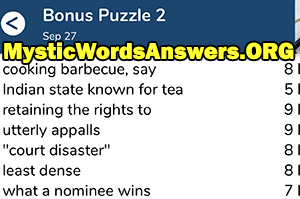

For instance, a couple who just had their first baby might tell friends and family they’re adjusting to their new normal.īut using the phrase to describe efforts to fight a global pandemic implies a sense of permanence that makes a lot of people uncomfortable. The phrase new normal is an oxymoron typically used to indicate a life event that is out of the ordinary and has a long-lasting or permanent impact on someone’s day-to-day routine. Words and phrases you never want to see or hear again once this is over, and go …įrom social distancing to speaking moistly (shudder), here are the tiresome terms that topped the list-plus some help from to give you other ways to say them (if you really must). So that’s why we used our Twitter to ask people to share the overused words and phrases they are utterly sick of hearing, and our fans did not hold back. Like a lot of things that are happening during this time, hearing and reading the same words in the media, at home, and online can start to feel frustrating and tiresome. While the world is quarantined due to the novel coronavirus, it seems like we’re all struggling with this problem.ĭay after day, the same handful of phrases clog our social media feeds and rise to the top of our trending tickers. You may find yourself straining to remember terms you learned a long time ago, or repeating the same words and phrases over and over again because you just don’t know what else to say. Ready for a challenge? Try to come up with rhymes for these surprising words that just aren’t very rhymy.When surprising, shocking, or scary things like the COVID-19 pandemic happen, it’s sometimes difficult to find the words to talk about it. Feminine rhymes: have a stressless syllable.Mascline rhymes: have a stressed syllable.Eye rhymes: look like they rhyme but sound different.Identical rhymes: use the same word at the end of each line.Internal rhymes: rhyming of two words within the same line.End rhymes: rhyming of the final word of a line.When creating lyrics, there are five types of rhymes to choose from. Within all contexts, rhyming is helpful in expanding your imagination no matter if you’re a child or an adult. In other words, rhymes teach children phrases to anticipate and rhymes enhance their memory.
#Words from utterly how to
Rhyming teaches children how language works, helps them understand the rhythm of language, and learn how to make predictions. With children, rhyming is a very important tool. Rhyming is very important in music because it creates a rhythm that further creates meaning, emotion, and feeling. This is why song lyrics can be so easy to remember! It's also why rhymes are a great study tool for memorizing! Use this tool to help write poetry, win rhyme games, write a rap song, create lyrics, and expand your vocabulary! Rhymes are most useful in creating lyrics, but they can also be used as a tool to memorize. Having trouble deciding if a word is a perfect or imperfect rhyme? Here are some examples: Near rhymes, otherwise known as imperfect rhymes, are words that sound the same but are not perfect rhymes. Words that most people would not question. No pun intended! Think of perfect rhymes as words which definitively rhyme. Perfect rhymes are just what they sound like. While we may not store definitions for all of these words, we can direct you to the Google results for that word.

Please note that many of our results are proper nound or slang. Click on any of the results for the word's definition, part of speech, use in Scrabble, and more. Once the color changes, you will notice the results reset back into alphabetical order. In your rhyming results, colors descend based on the best rhyme. It's really that simple! We separate perfect rhymes (near the top) from the imperfect rhymes (toward the bottom). This includes rhymes based on syllables, near rhymes, and more.Įnter your "starter" word in the FIND RHYMES input box, and click search. Welcome to the Rhyme Finder! This rhyming dictionary allows users to explore rhymes for any given word.


 0 kommentar(er)
0 kommentar(er)
